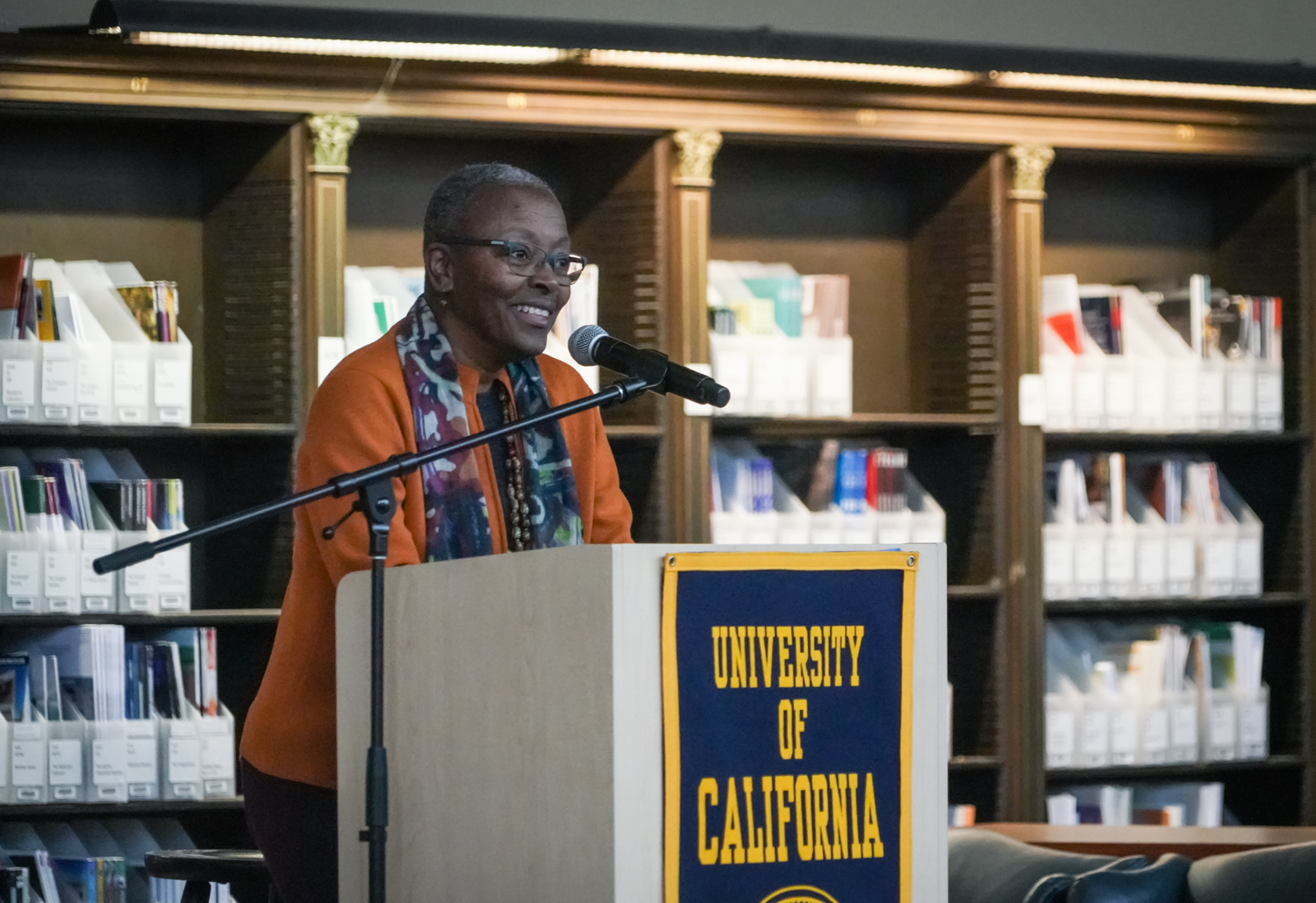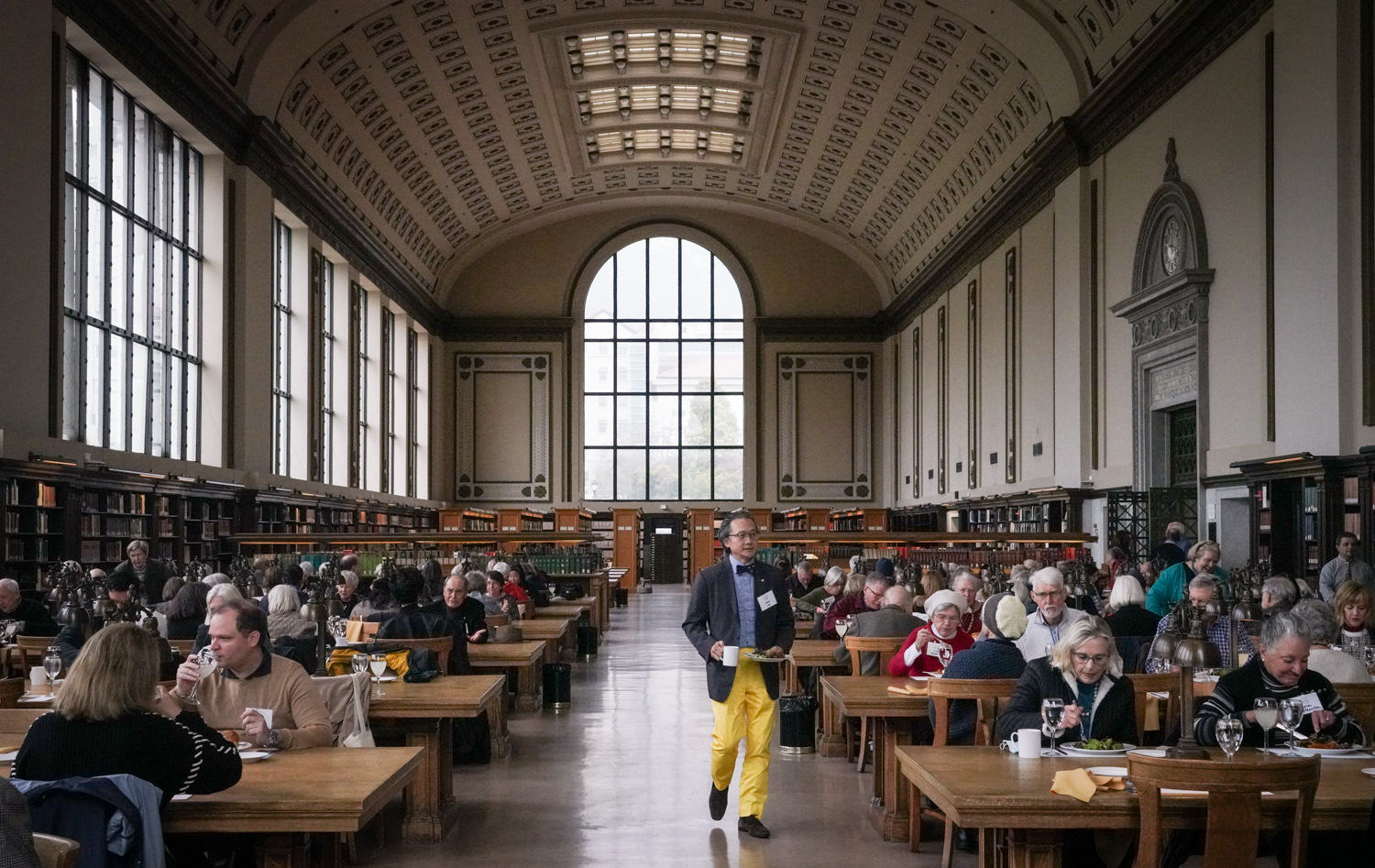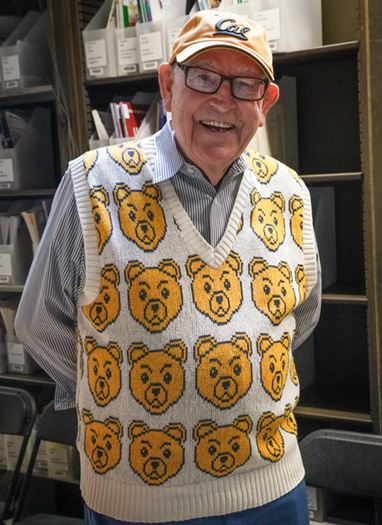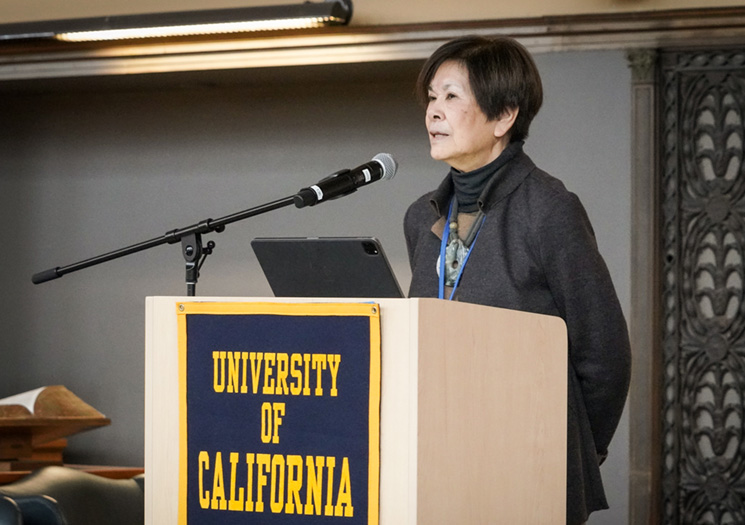
When Dorothy Lazard recognized that aging meant losing some of her most formative memories, she did what any longtime librarian might — she decided to catalog them.
That act of preservation shines in the local author’s debut book, What You Don’t Know Will Make a Whole New World. This week, Lazard treated a rapt audience to selections from her work at the Luncheon in the Library, an annual event for UC Berkeley Library supporters.
Lazard said the memoir-as-“recovery mission” was meant to commemorate her 50th year in California, and was inspired by her desire to understand how she became who she is today. The moving work of creative nonfiction recounts Lazard’s childhood journey from St. Louis to the Bay Area in 1968, and focuses on the author’s first decade in California.
“More than any other time, those first 10 years in California were really what made the blueprint of the person you see here today,” she said.
Here are three additional things we learned from Lazard’s hourlong talk in Doe Library’s Roger W. Heyns Reading Room.

1. Libraries are places of refuge, and self-discovery.
Lazard worked as a librarian for nearly 40 years. She earned her Master of Library and Information Studies from UC Berkeley in 1983, and spent her first 17 years as a librarian on Cal’s campus. She joined Oakland’s Main Library in 2000, and served there until her retirement in 2021.
The seeds for that decades-spanning career were planted at the Western Addition Branch Library in San Francisco, where a young Lazard obsessed over books, both as tactile objects and imaginative odysseys.
“It seemed to me that I could live forever reading every day, all day, and still not read everything in that branch library,” she said. “The concept was overwhelming, troubling, and tantalizing.”
Books, she realized, had much to teach her. The Diary of a Young Girl, by Anne Frank, gave her a different perspective on World War II. She learned about the power of poetry from Langston Hughes, and facts about the French Revolution from Alexandre Dumas.
She also saw herself — and an inkling of her potential — in books.
“Most significantly, I found Black women writers: Maya Angelou, Toni Morrison, and Virginia Hamilton, who spoke about things in a language I recognized,” she recalled. “I’ll never forget the feeling of exhilaration that came over me when I read Black dialect for the first time. It was like being in a room with family members. Seeing words in print that had only existed for me in spoken language was validating. Seeing them in books somehow made what I had experienced feel significant. And I realized that Black girls could grow up to become writers of books housed in libraries.”
Library Board member Sheryl Wong ’67, ’68, who delivered the opening remarks at the event, called Lazard’s talk delightful, and heaped praise on the memoir.
“(In her book), she talked about the secret life of children, and how the library was that place for her,” Wong said. “It was a place of refuge. But it was also more than that. It was a place where she was learning so much. And it became her place in many ways. It was a home for her.”


2. Words are powerful — and costly.
Lazard’s earliest forays into writing came after reading Harriet the Spy, the children’s novel by Louise Fitzhugh. Lazard imagined herself as a detective, and she took notice — and notes — of the people, places, and activities in her Fillmore district neighborhood.
One day, her grandmother began asking questions about a notebook in which Lazard had been writing about the figures in their lives, including the matriarch’s friends from church. Lazard recounted how her grandmother became frustrated and smacked her with a flyswatter before tearing the pages from the book.
“By destroying my first attempts at writing, though, my grandmother unwittingly lit a fire,” Lazard recalled. “Her act of intolerance was an important lesson about the power of words.
“There was something about what I had written that put her on the defensive, made her look at me differently, with a suspicion that at least promised engagement, if not acceptance. Words written were exhilarating, but costly. People who were committed to them paid a price, I was learning. And that price, I would realize later, is where great stories come from.”
3. We need to talk about book bans.
In the Q&A portion of the event, Lazard was asked how regular citizens can support librarians who are grappling with calls to ban or censor books.
Lazard said the call for book bans comes from a place of fear. “It’s about fear of … difference — of people who are different, who pray differently, who look differently, who are from different places.”
She suggested having a conversation with the people calling for bans. “If you see somebody in front of the library shaking their fist at Charlotte’s Web (by E.B. White) or, you know, War and Peace (by Leo Tolstoy), or whatever they have a problem with, get into a conversation with them and ask them: ‘Well, what about it don’t you like? What scares you about it? What challenges you about it?’”
For Lazard, silence is never an option. She said that book bans fly in the face of the mission of every library that has ever existed. And that we should never assume that freedom to read is unassailable. She encouraged people to let their local librarians know that they are in favor of books representing a multitude of voices and perspectives.
“Get engaged with your local library, even if you don’t have a kid in the house,” she said. “Go to the library and say, ‘Hey, I support you. Hey, buy this book. I want to read it.’”
The Luncheon in the Library is a private, invite-only event honoring Library supporters. Past speakers include Carol Christ, Chancellor of UC Berkeley; Rita Moreno, dancer, singer, and actress; and Gary M. Pomerantz, author and journalist.